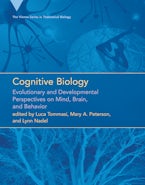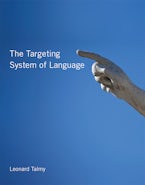Read this book, and even if you don't read it, buy it and display it proudly. Scientists, engineers, and coffee tables the world over should be interested in the revised edition of this seminal book that first gathered and developed the critical mass of ideas from mathematics, computational science, and systems theory necessary to launch and fuel the ongoing revolution in complex innovating systems. From mathematical optimization to the immune system, from machine learning to the central nervous system, from automatic control systems to even something as complex as human society itself, all innovating systems fall under the spell of Holland's mathematical-computational magic, and all individuals interested in understanding engineering such systems ignore Holland at their peril.
David E. Goldberg, Unviersity of Illinois-Champaign
Adaptation by natural selection has many analogies with adaptive learning to the environment in the higher animals and in human individuals and society. The possibility of exploiting this analogy to solve problems and to model individual and social behavior has become greatly enhanced with the resources of modern computing. John Holland has brilliantly drawn the analogies with precise algorithmic accuracy and has analyzed the different levels of adaptation and their interrelation. His methods have been employed in studying economic interactions and have permitted a replication of the economy in terms of artificial adaptive agents learning new strategies, an approach which permits us to see the effects of varying modes and capacities for adaptation on the workings of the economy.
Kenneth J. Arrow, Stanford University
This book is required reading for anyone who is interested in the evolution of complex adaptive behavior.
W. Danny Hillis, Thinking Machines Corporation
Adaptation in Natural and Artificial Systems is a classic. It launched the entire field of genetic algorithms and was one of the principal inspiration for the now-blossoming research area of Artificial Life.
Douglas R. Hofstadter, Indiana University
The last decade has seen a resurgence of interest in biological inspiration for parallel computing systems: first, the artificial neural networks inspired by study of the brain, and the genetic algorithms inspired by the study of natural selection and evolution. Inevitably, newcomers to the field are beginning to suggest unifications. It will thus come as a delight to many to learn that John Holland's book...created the study of genetic algorithms within exactly such a interdisciplinary perspective.
Michael Arbib, University of Southern California
John Holland is a modern seer. Over fifteen years ago...he conceived a unified framework for adaptation and from that invented the genetic algorithms whose use in engineering, science, and especially, contemporary artificial intelligence and artificial life has—after a long gestation in which the rest of us caught up—entered a phase of explosive growth.
Stewart Wilson, Rowland Institute
This book will be enjoyed by all students of population genetics and evolution. The MIT Press has performed a real service by making it available again to a wide audience.
Charles E. Taylor, University of California, Los Angeles












